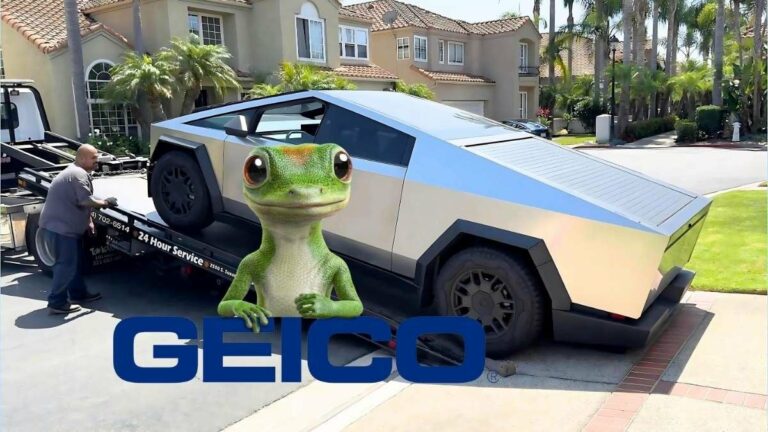GEICO, the second-largest vehicle insurance underwriter in the United States, has decided to terminate insurance coverage for Tesla Cybertrucks, stating that this type of vehicle doesn’t meet their underwriting guidelines. The decision affects current Cybertruck policies, with owners receiving notifications that their coverage will be discontinued.## Reasons Behind GEICO’s Decision
One of the primary factors contributing to GEICO’s decision appears to be the numerous issues surrounding the Tesla Cybertruck. Owners have reported various problems, including vehicles breaking down or getting ‘bricked’ for no apparent reason. The Cybertruck has also been associated with high repair costs and lengthy repair times, particularly following minor accidents. Some owners have shared quotes exceeding $13,000 for repairs after relatively minor incidents.
Another concern is the Cybertruck’s stainless steel exoskeleton, which has been observed to cause significant damage to other vehicles in collisions while sustaining minimal damage itself. This has raised concerns about potential liability limits that GEICO might have to pay out in the event of an at-fault accident.
Impact on Cybertruck Owners
For owners like Robert Stevenson, who recently discovered that GEICO was terminating his Cybertruck’s insurance coverage, the decision comes as a significant inconvenience. Stevenson, who has an ‘amazing record’ and insures eight vehicles with GEICO, was surprised that the company chose to continue covering his other vehicles while dropping the Cybertruck.
This selective termination suggests that GEICO’s decision is directly related to the Cybertruck itself, rather than the owner’s driving history or other factors. Stevenson and other affected owners are now seeking alternative insurance providers.
Industry Implications
While GEICO’s decision doesn’t necessarily mean other insurance companies will follow suit, it highlights the challenges associated with insuring innovative but potentially problematic vehicles like the Cybertruck. Progressive, for instance, has been mentioned as continuing to cover Cybertrucks, indicating that not all insurers share GEICO’s concerns.
The situation underscores the complex relationship between vehicle manufacturers, insurance companies, and consumers. As electric and unconventional vehicles become more prevalent, insurers will need to adapt their policies and risk assessments accordingly.
Conclusion



